

Young Solomon Islanders are encouraged to speak their Pijin and native languages.
Photo/MPP
'Don't be embarrassed': Diaspora urged to proudly uphold cultural heritage
The inaugural Solomon Islands Language Week has concluded, and the community is already looking forward to what the new year will bring.



Diamond Langi steps into her boldest era with ‘Yodelay' ft. JKings
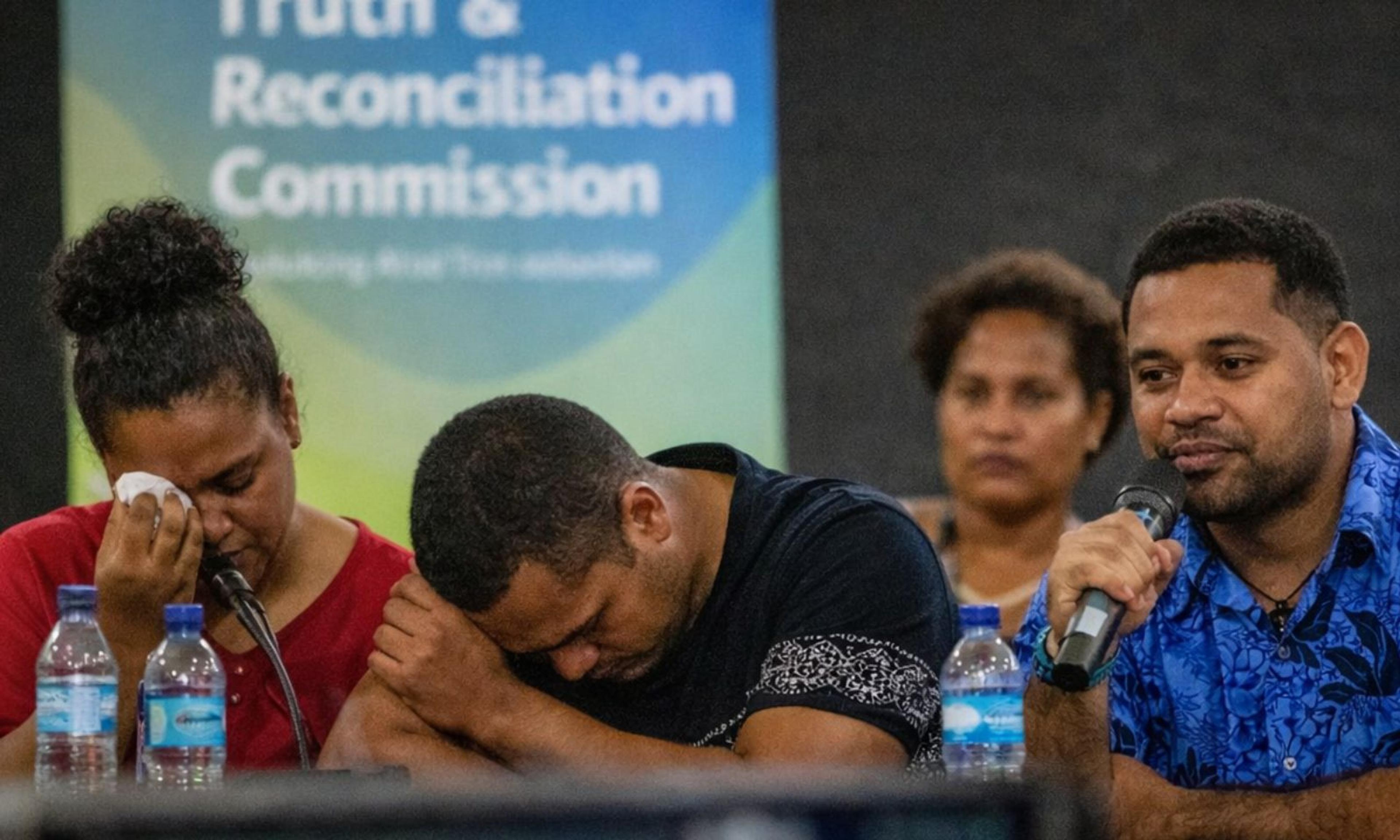
Testimonies in truth and reconciliation commission lay bare Fiji’s painful history
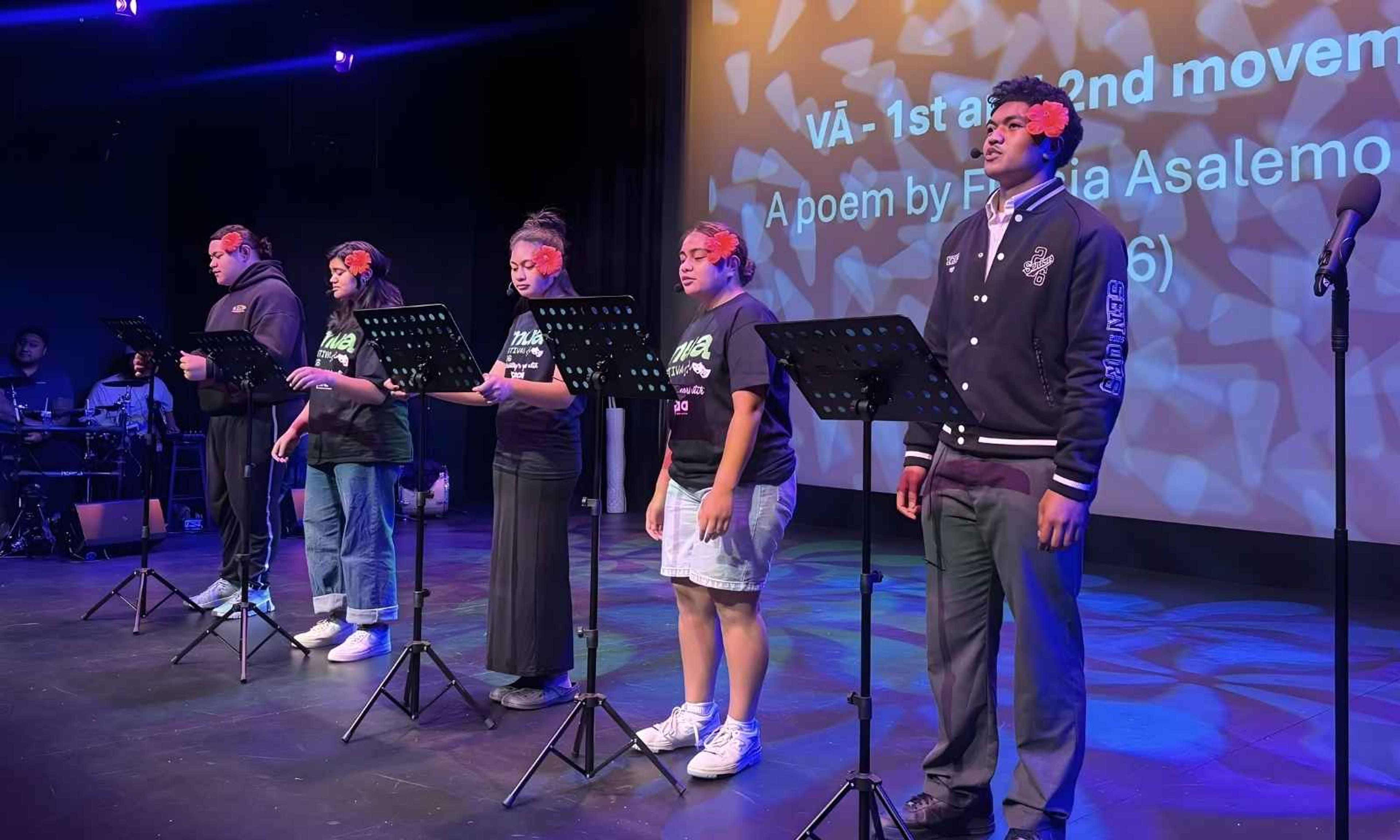
From Melbourne to the main stage: Pacific artists celebrate a decade of storytelling


Pacific leaders demand fair backing as Moana Pasifika cancels Tonga Super Rugby match

Diamond Langi steps into her boldest era with ‘Yodelay' ft. JKings

Testimonies in truth and reconciliation commission lay bare Fiji’s painful history

From Melbourne to the main stage: Pacific artists celebrate a decade of storytelling
It took more than 10 years for the New Zealand Government to acknowledge that the Solomon Islands deserves to be included in Aotearoa's Pacific Languages Series.
Minister for Pacific Peoples, Dr Shane Reti, says the decision reflects the passion of New Zealand’s Melanesian communities to share and celebrate their culture.
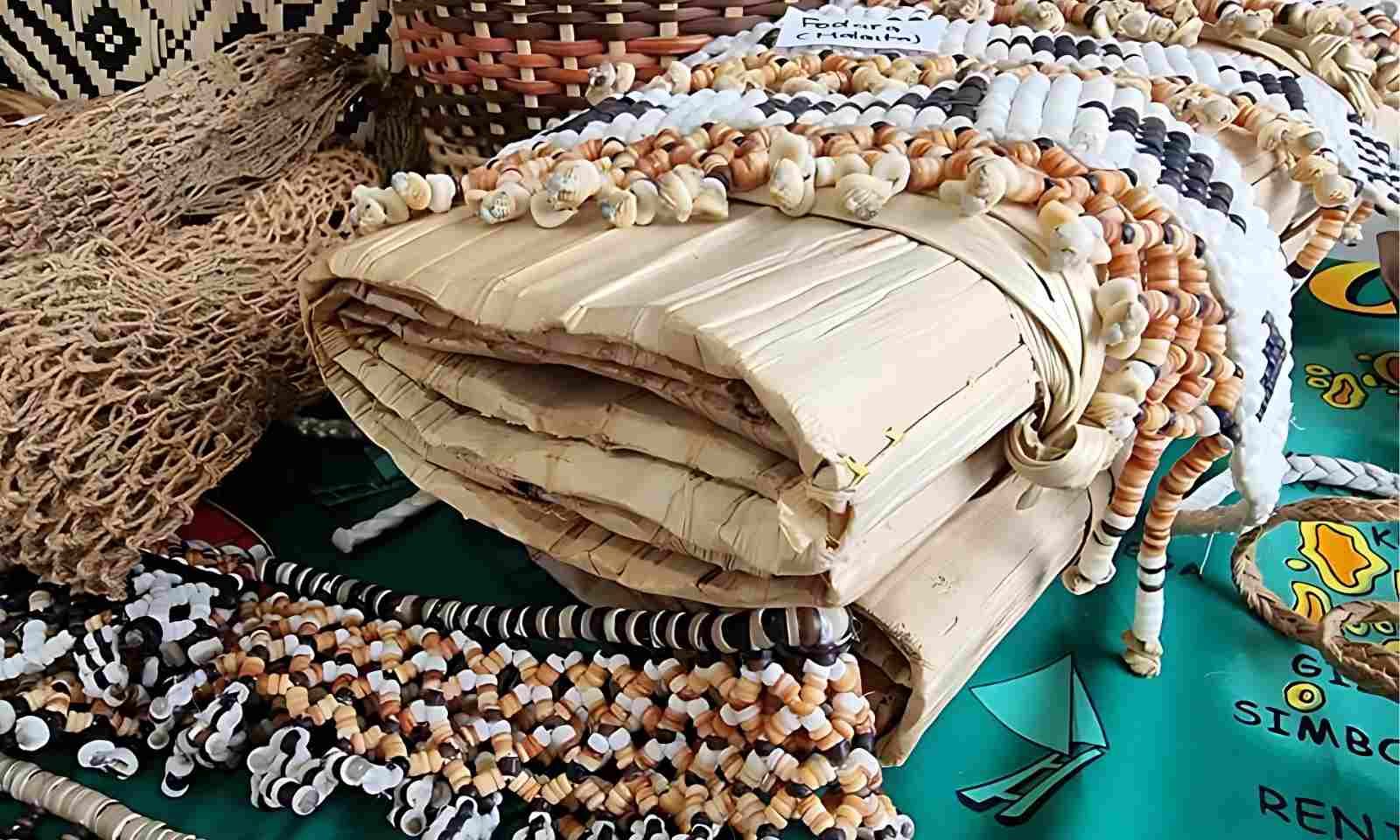
Traditional artefacts of the Solomon Islands, including the tafuli'ae (shell money necklace). Photo/SIAWA
The diaspora is grateful for this recognition following the first-ever Solomon Aelan Pijin Langguis Wik, or Solomon Islands Language Week, which ran from 24 to 30 November across the mōtu.
This year, the series officially celebrated two new languages: Solomon Islands Pidgin and Papua New Guinea Tok Pisin.
For the first time, Solomon Islanders living in Aotearoa could celebrate their language and culture alongside their Melanesian wantoks from PNG, who marked their own PNG Pidgin Language Week a week earlier.
The theme for the Solomons Week was 'Protektim langguis an kalsa blong yumi - Protect our language and culture.'
Community leaders expressed their gratitude, saying that while it has taken a long time, they feel "thankful and blessed" that their contributions to New Zealand have not gone unnoticed.
Florie Dausabea, president of the Solomon Islands Wantok Association Incorporated (SIAWA), says the language is an important and precious asset and a point of pride for any nation.
She says the language has demonstrated strong vitality, richness, and beauty throughout the history of the Solomon Islands despite various challenges.
Situated about 3700km north of New Zealand, the Solomons Islands consists of six major islands and more than 900 smaller islands in the Melanesia group, which includes PNG, Fiji, Vanuatu, and New Caledonia).
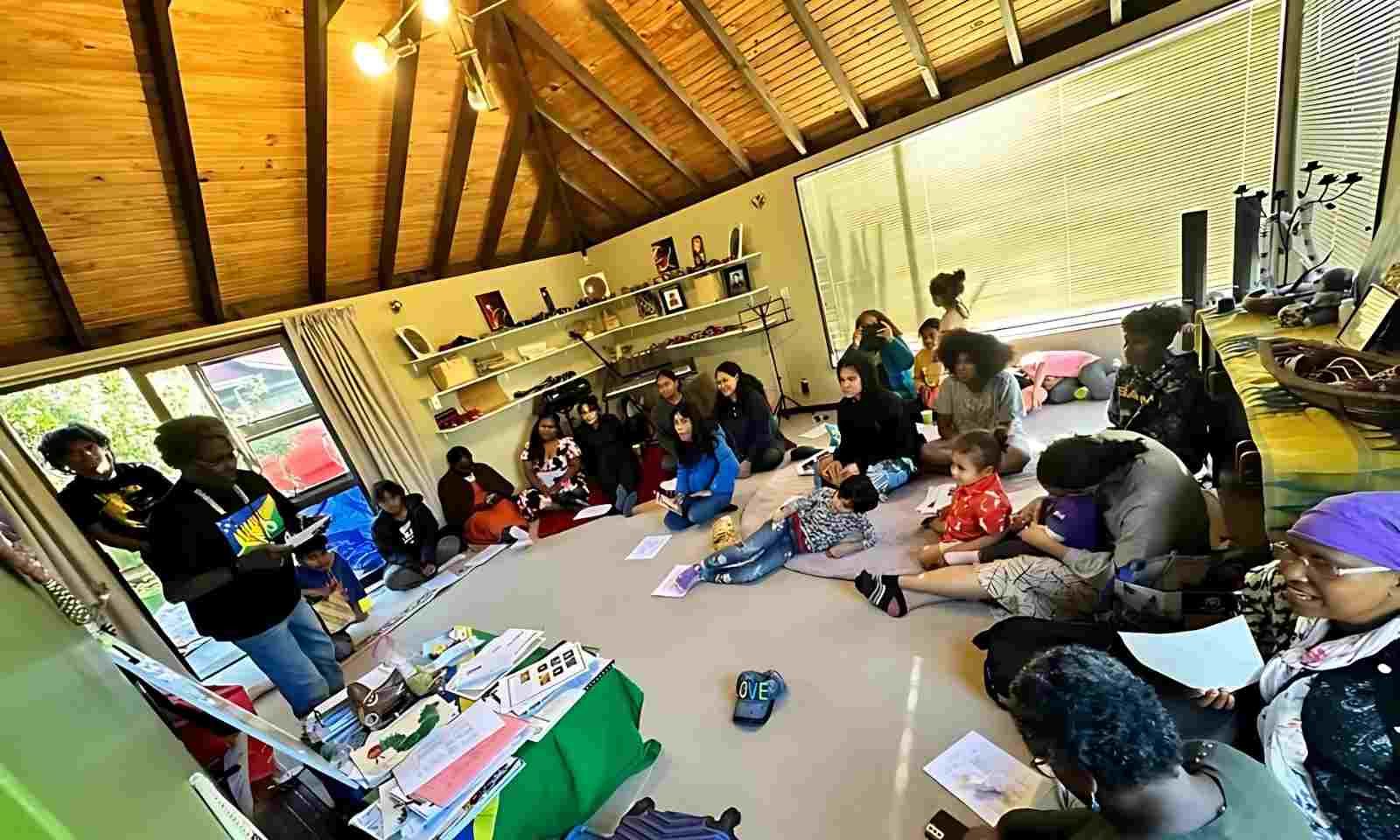
Glorious Oxenham teaches a Pidgin class to the Wellington Solomon Islands Community children. Photo/RNZ Pacific/Koroi Hawkins
The Solomons has a population of around 750,000, according to a government census in mid-2023.
While English is the official language, only about two per cent of Solomon Islanders can communicate fluently. However, most of the population speaks an English creole, Solomons Pijin, along with 70 local indigenous languages. Pijin is closely related to Tok Pisin, spoken in Papua New Guinea.
According to StatsNZ, the diaspora in Aotearoa numbers about 800, with 60 per cent of them born in the Solomon Islands.
Jillian Sabetian, an admissions assessor at Auckland University of Technology, began her language learning journey on Kolombangara Island.
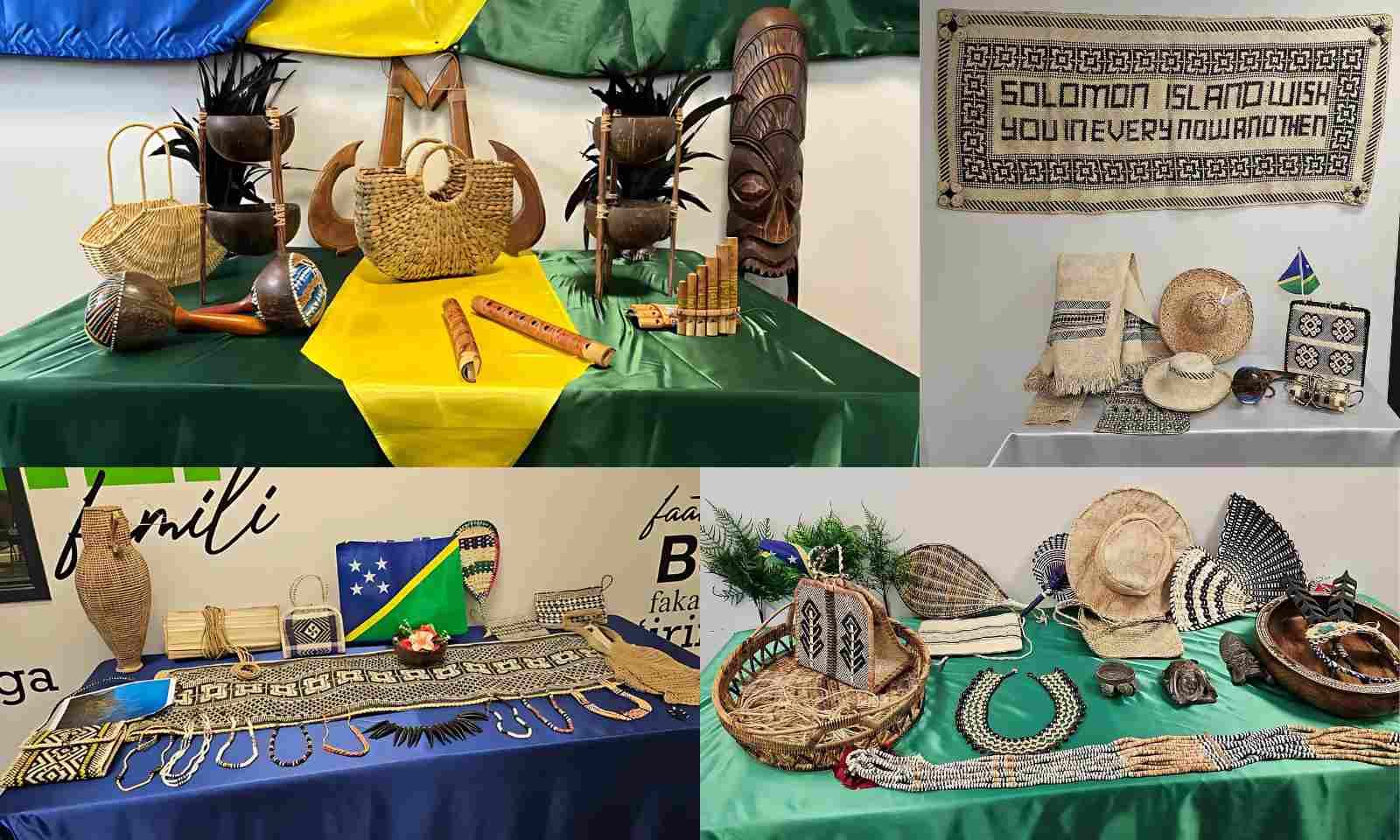
Photo/PMN Solomons
"Language is an important aspect of my identity and shapes who I am and how I communicate.
"Nem blong mi Jillian Sabetian [My name is Jillian Sabetian}. Mi blo Solomon Islands an mi waka lo AUT [I am from the Solomon Islands and I work at AUT].
"I grew up speaking the common Pijin and my own native languages of Nduke and Roviana."
She credits her grandparents with instilling in her essential life skills, culture, and a sense of identity.
Watch the New Zealand High Commission staff in Honiara celebrate Solomon Islands Language Week.
Sabetian believes that by ensuring the language is passed down from generation to generation, "you help sustain one's culture into the future".
"By making sure we use it daily, we have made an effort to speak pijin all the time from when my kids were born until today.
"They grew up hearing it before they could speak. Even my husband, who is not a Solomon Islander, has made an effort to speak Pijin everyday with meand the kids.
"My advice would be to embrace the language and the culture you want to learn and don't be embarrassed if you get the words or pronunciation wrong. That's how you will learn."
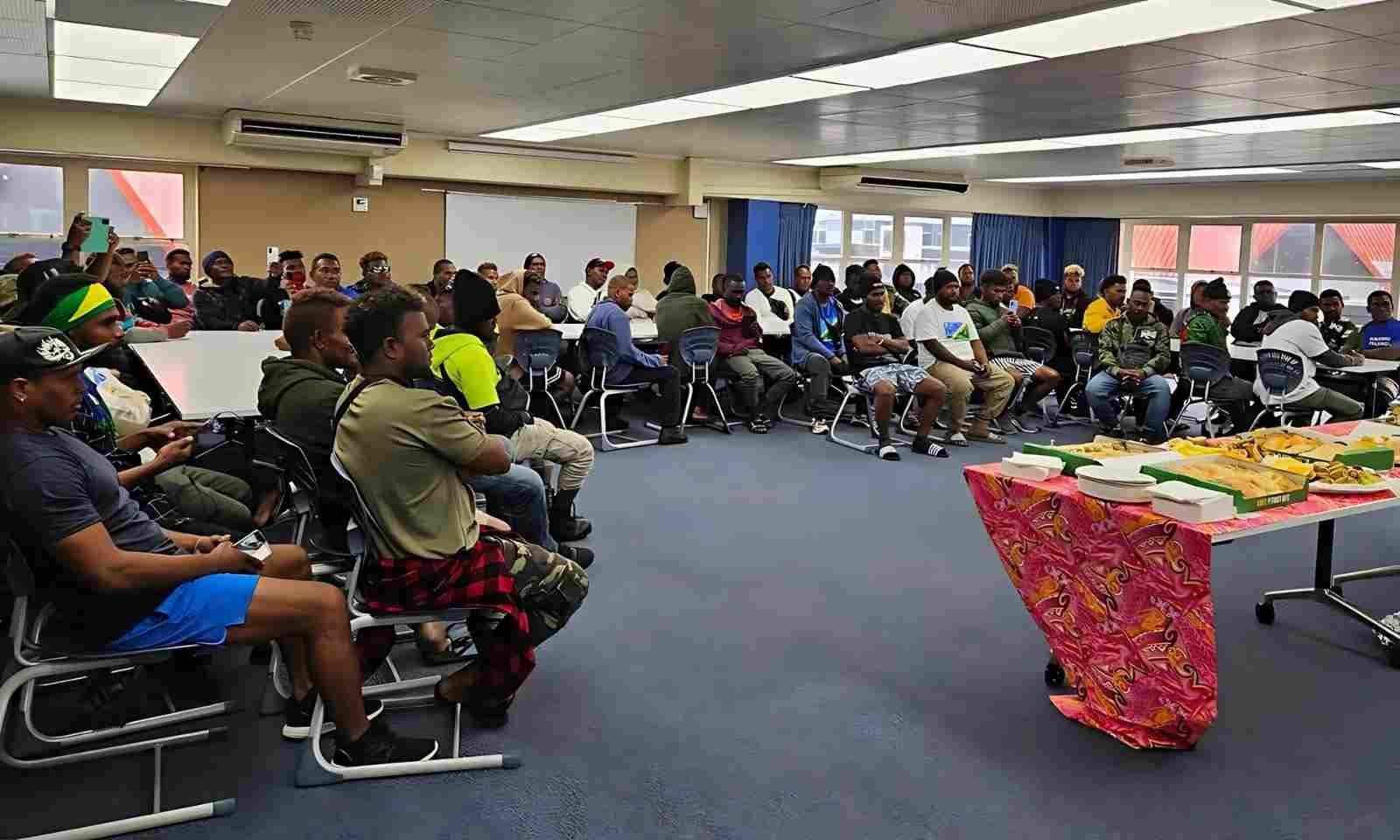
Wantok RSE workers gather in Hastings to celebrate Solomon Islands Language Week. Photo/Hastings District Libraries
The weeklong celebrations in New Zealand ended on Saturday with an official closing ceremony at the Pātaka Art and Museum, The Spine, hosted by the Wellington Solomon Islands Community.
Events also took place across Aotearoa. In Auckland, the Solomon Islands Wantok Association Inc (SIAWA) organised cultural performances, conversational Pijin, and light refreshments at the Auckland War Memorial Museum, Tamaki Paenga Hira, Parnell. Celebrations were also held in Hamilton.
On the South Island, a Wantoks Picnic at the Park was held at Woodhaugh Gardens in Dunedin. Community members brought dishes to share and participated in family-friendly activities.
The Canterbury Solomon Islands community organised a sports day in Christchurch at South Hagley Park.
A group of SIAWA committee representatives, including Dausabea, Bernadette Loloselo (treasurer), Juliana Satchell and Eileen Atomalefo, and youth ambassadors Sarah Atomalefo, Nicole Loloselo, Olivet Atomalefo, Ebony Deo, Rene Sanga, Kelyan and Ephraim Atomalefo visited the Pacific Media Network (PMN) in Manukau on Friday to join the celebrations.
They enjoyed lunch organised by PMN Solomons host Trixy Ibnul. The group presented PMN Chief Executive Don Mann with a tafuli'ae (shell money necklace), and the youth later performed a dance.
The Solomon Islands Language Week is the final event of the 2024 NZ Languages Series.
The 11 Pacific Language Weeks, running from May until November, focus on Rotuma, Sāmoa, Kiribati, Cook Islands, Tonga, Tuvalu, Fiji, Niue, Tokelau, Papua New Guinea, and Solomon Islands.